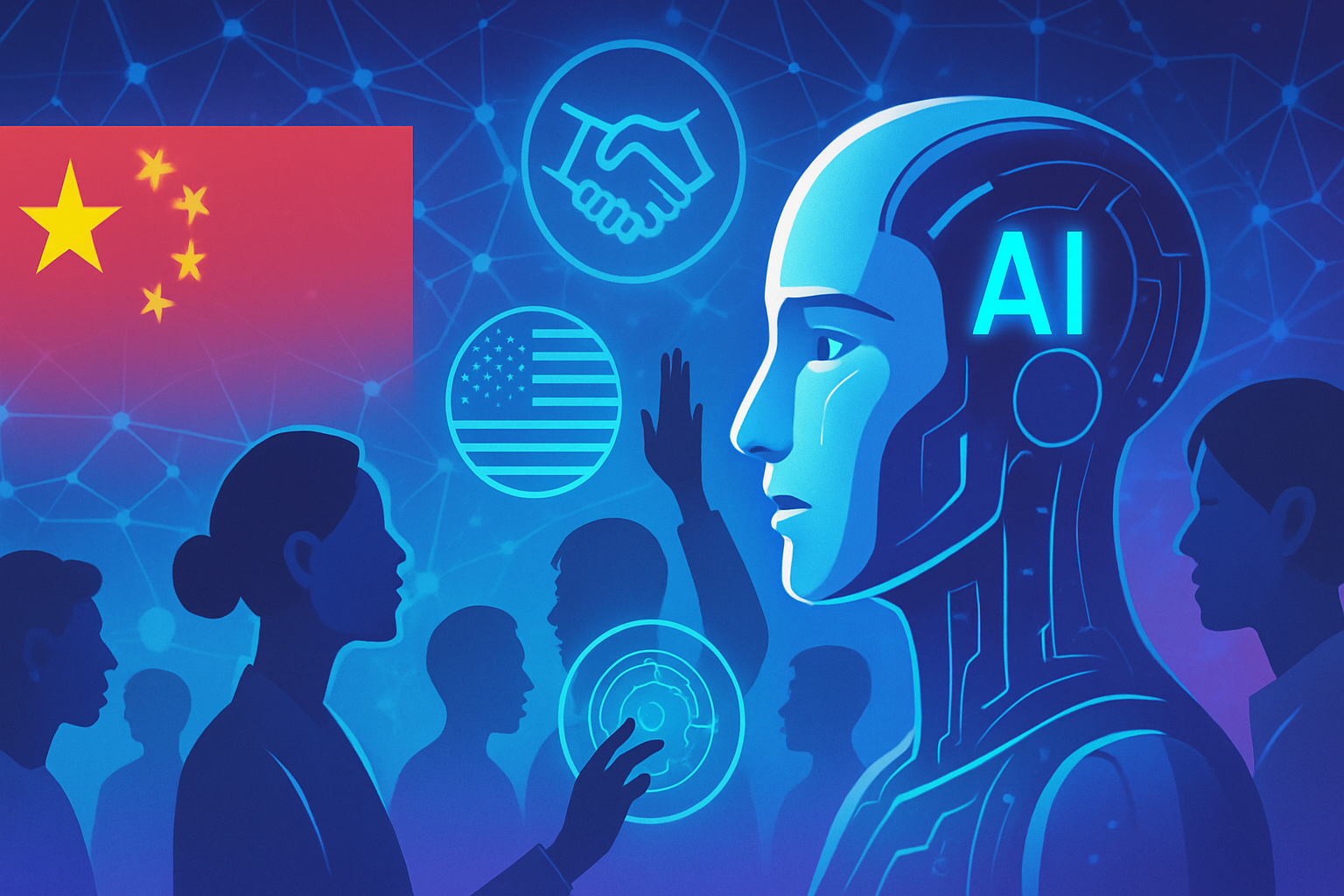China is emerging as a champion of artificial intelligence. The strategic publication aims to establish an open and inclusive model competing with American initiatives. Through this approach, the country aspires to transcend conventional limitations, redefining the contours of technology. The geopolitical, economic, and ethical issues of innovations thus become paramount. Resisting American technological supremacy is asserted as a priority for Beijing. Artificial intelligence, a vector of societal evolution, is transforming into an indispensable strategic weapon for future development.
China’s technological ambitions
The People’s Republic of China has decided to intensify its efforts in the field of open and inclusive artificial intelligence. This strategy aims to compete with the United States in a rapidly evolving domain. By encouraging the development of AI tools accessible to a wide audience, the country hopes to strengthen its influence on the global technological stage.
A collaborative ecosystem
China is relying on an AI ecosystem that promotes collaboration among different stakeholders. The creation of a common platform allows for resource pooling and stimulates innovation. By establishing synergies between startups and tech giants, the country aims to propel the AI landscape to new heights.
Focus on education and training
The government is launching significant initiatives to raise awareness and train its citizens in AI technologies. Investing in education is fundamental to ensuring a skilled workforce. Continuous training and specialized university programs are priority areas to secure the future of the national technology industry.
Regulation at the heart of concerns
In face of the ethical and regulatory challenges posed by AI, China is striving to establish a legislative framework. This framework aims to balance innovation and responsibility. The establishment of clear standards will secure the use of technologies while encouraging responsible development.
The challenge of data privacy
Data security is a major challenge in the development of AI. China is taking measures to protect user information while advancing in the implementation of intelligent systems. Thus, data management becomes an essential aspect to instill trust among citizens.
Perspectives for international cooperation
International cooperation initiatives are emerging, focused on knowledge sharing. China is open to partnerships aimed at promoting progress in AI. Through these collaborations, fruitful exchanges allow for leveraging diverse expertise and improving developed technologies.
News related to AI and its impact
Recent developments in artificial intelligence are attracting the interest of economic stakeholders. It is essential to stay informed about advances such as those concerning security issues in the use of chatbots. Special attention is required for cybersecurity, especially in the face of the expansion of digital services.
Influence of key personalities and stakeholders
Influential personalities in AI are emerging on platforms like LinkedIn. Their impact is felt in the political and economic decisions affecting this industry. A growing interest in opinion leaders highlights the importance of social networks in this dynamic field.
Conclusion on global competition
The competition between China and the United States regarding artificial intelligence shows no signs of easing. Each of the two powers is investing colossal resources to dominate this strategically vital sector. Vigilance will be necessary to observe how these developments shape the global technological future.
Frequently asked questions about artificial intelligence in China
What is open and inclusive artificial intelligence in China?
Open and inclusive artificial intelligence in China refers to initiatives aimed at developing AI technologies accessible to all, fostering innovation and collaboration while encompassing various sectors of society, as opposed to a restricted and exclusive model.
How is China positioned compared to the United States in the field of AI?
China seeks to compete with the United States by investing heavily in AI research and development, while promoting policies that encourage collaboration among government, businesses, and academic institutions to strengthen its position as a leader.
What are China’s main goals in artificial intelligence?
The main objectives include improving economic efficiency, digital transformation of key sectors, strengthening national security, and enhancing the quality of life through AI applications in health, transportation, and urban management.
What is the importance of data in the development of AI in China?
Data is crucial for AI as it feeds machine learning algorithms. China has an immense volume of data due to its digital population, allowing it to develop more efficient AI systems compared to other nations.
How does China plan to ensure ethical and responsible AI?
China has begun to establish legal and ethical frameworks to guide the development of AI, incorporating principles of transparency, security, and data protection to ensure responsible applications while maintaining governmental controls.
What challenges does China face in the development of artificial intelligence?
Challenges include a shortage of specialized talent, ethical concerns, the need for better regulation, and geopolitical tensions, particularly with the United States, which can affect international collaboration and access to innovative technologies.
How are Chinese companies participating in AI innovation?
Chinese companies like Alibaba, Tencent, and Baidu are investing heavily in AI by developing products and services, creating partnerships with startups, and collaborating with universities to remain at the forefront of technological advances.
What role does the Chinese government play in AI development?
The Chinese government plays a central role in drafting national policies, funding AI research projects, and creating infrastructures that support innovation. This includes initiatives to promote startups and attract international talent.






